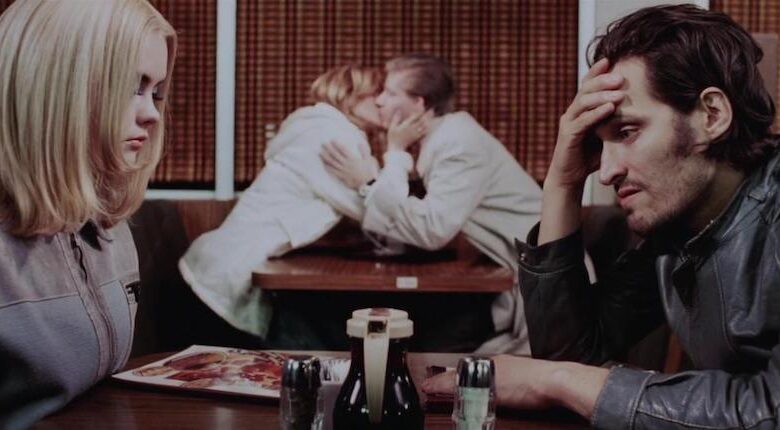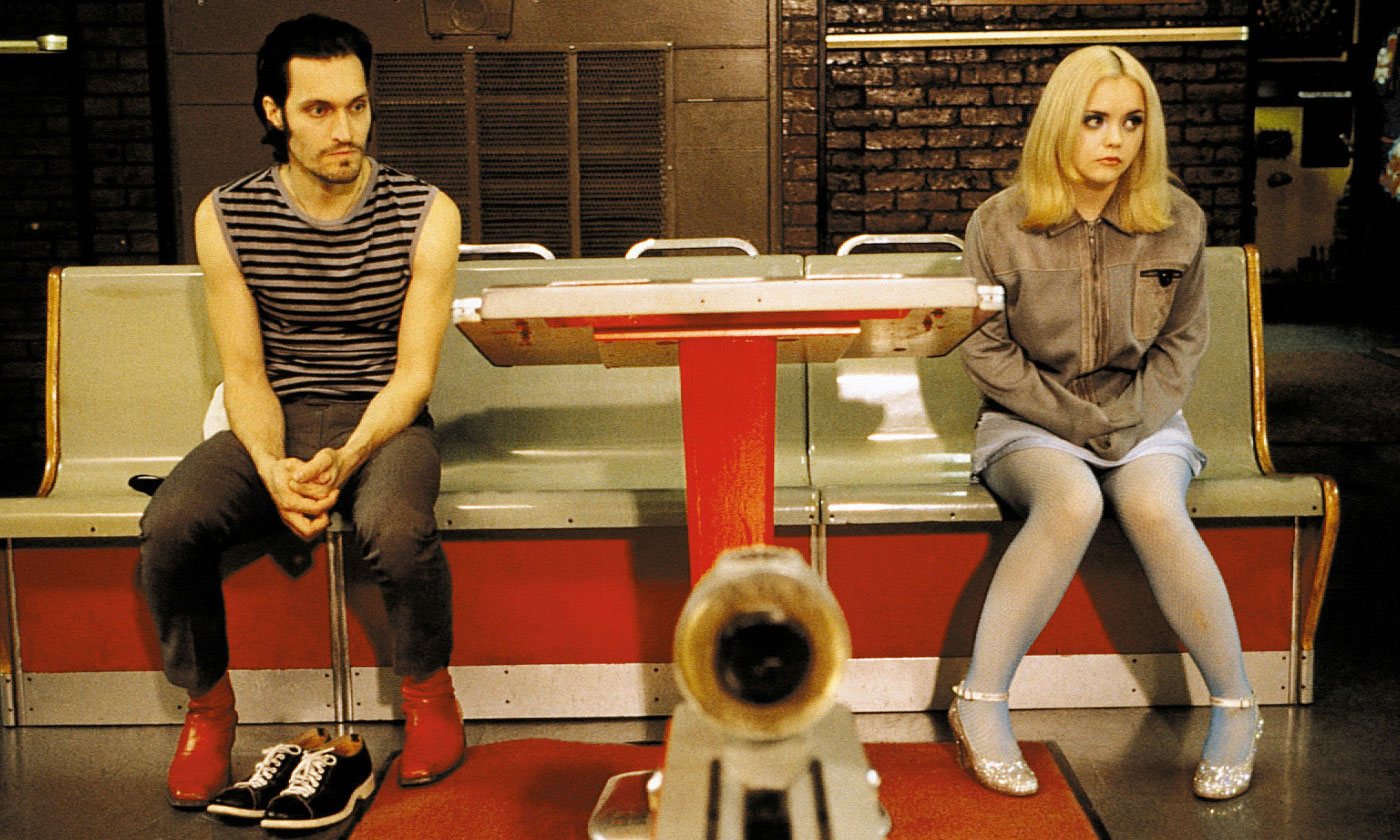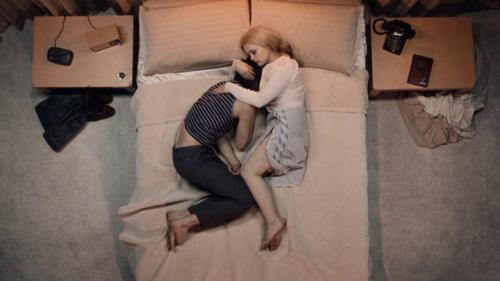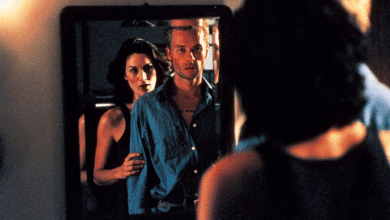
1. A Life Without Warmth
When Billy Brown walks out of prison at the beginning of Buffalo ’66, he doesn’t look triumphant or free. He looks lost. The cold, grey streets of Buffalo mirror his inner landscape—barren, rigid, and starved of life. Vincent Gallo, who wrote, directed, and played Billy, doesn’t give us a typical ex-con seeking redemption. Instead, he gives us a man so emotionally malnourished that basic kindness feels foreign.
Billy isn’t cruel, but he’s abrasive. His body language is defensive. He moves through the world like someone always bracing for impact. His parents don’t love him. They barely remember him. His mother is obsessed with the Buffalo Bills; his father (Ben Gazzara) exists in a silent void. Billy’s crime, we later learn, wasn’t really his crime at all—it was the result of a lie he told to impress someone, just to belong. Every action he takes is shaped by the silent scream of a man who has never truly been seen.

2. A Girl Who Should Have Walked Away
Layla enters the story unexpectedly. Played with calm sensitivity by Christina Ricci, she becomes entangled in Billy’s scheme almost by accident. He kidnaps her—awkwardly, without conviction—to pose as his wife during a visit to his parents. She could run. She should run. But she doesn’t. Why?
Layla’s silence is not weakness. She observes. She waits. She seems to intuit that Billy isn’t dangerous—just scared. She accepts his absurd demands with a strange grace, never mocking him, never escalating his panic. Where others would resist, she listens. Her calmness disarms his aggression. Her gaze is steady. And somehow, without ever saying it outright, she gives him permission to soften.
3. The Intimacy of Stillness
What makes Buffalo ’66 so affecting is its refusal to rush. It doesn’t fill space with action or words—it lingers. It holds its breath. And in that stillness, intimacy grows—not through declarations or grand gestures, but through quiet, vulnerable proximity.
There’s a moment in a motel room that defines the entire film: Billy lies next to Layla, rigid, barely breathing. She says little. There’s no touch, no kiss. And yet, the tension is palpable. Not s.e.xual tension in the traditional sense—but the emotional tension of two people who don’t know how to connect, yet deeply need to. The fear of rejection looms over them. And yet, for the first time, Billy doesn’t run. He stays. He lets the silence speak.
In a world that often equates love with words or acts, Buffalo ’66 reminds us that sometimes, love begins in shared stillness—when two people simply exist beside each other without harm.
4. Learning How to Feel
Throughout the film, Billy is trying to perform something he’s never been taught: how to be human in front of another person. His idea of masculinity is broken—rooted in posturing, bravado, and quiet rage. But Layla doesn’t demand that he be different. She doesn’t lecture or save him. She just is. And in her acceptance, Billy begins to unfold.
There’s a beautiful honesty in how Buffalo ’66 shows this transformation—not as a smooth arc, but as a series of stumbles. Billy still lashes out. He still acts foolishly. But slowly, his posture changes. His voice softens. He becomes curious instead of combative. He begins to ask—not demand—for closeness. The film isn’t about a man “learning to love”; it’s about a man discovering that he might be worthy of being loved in the first place.
5. A Love That Doesn’t Need Fixing
By the end of the film, Billy doesn’t become a hero. He doesn’t fix his life. But something crucial happens: he chooses not to follow through with revenge. He chooses not to destroy. Instead, he returns to Layla, holding a small heart-shaped cookie, a quiet peace offering. He lies down beside her—not to conquer, not to impress—but just to be near.
This is the real ending: a man who has been unloved his whole life finally rests his head on someone’s chest and allows himself to exhale. Not because all is healed, but because—for once—he is safe.
There’s no sweeping music, no long monologue. Just two broken people lying in bed, the world outside still harsh and cold, but in this room, a small warmth flickers.

Buffalo ’66 is not a traditional love story. It is the story of emotional starvation, and the slow, uncertain opening of the heart after years of being locked away. It shows how love doesn’t always arrive with fireworks. Sometimes, it tiptoes in through the smallest acts: a shared room, an open gaze, a heart-shaped cookie placed gently in someone’s hand.
It’s not a film about falling in love.
It’s a film about letting someone stay.






